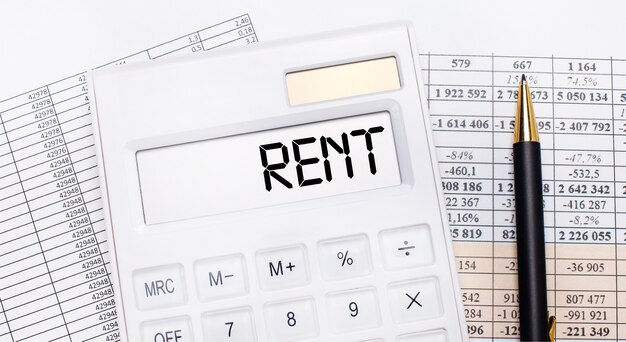Have you ever pondered, “Why is my landlord getting an appraisal?” Rest assured that you’re not the only one! Tenants often feel inquisitive and unsure when faced with this query. This article delves into why landlords may choose property appraisals and how it could potentially affect tenants like yourself.
Understanding Property Appraisals

Property appraisals are complex procedures that involve several steps and factors. Here, we break down the appraisal process into its key components:
Property Inspection
To initiate the appraisal process, an extensive inspection of the concerned property is performed. The appraiser evaluates diverse elements such as dimensions, state, age, design, and general standard while conducting this examination. Additionally, any exceptional attributes or enhancements that can impact its worth are also observed by them.
Comparable Market Data
To evaluate a property’s market value, appraisers highly depend on comparable sales data (comps). By scrutinizing properties that have been recently sold in the same or similar neighborhoods as the subject property, they determine how it matches up. Various factors like location, size, condition, and amenities are taken into account while choosing comps.
Market Analysis
Performing an in-depth market analysis is a critical aspect of the appraisal procedure. Evaluating present market circumstances, tendencies, and economic markers that could influence property valuations enables appraisers to guarantee that assessments reflect the latest conditions in the marketplace.
Valuation Approaches
Appraisers typically use three primary approaches to determine a property’s value:
- Sales Comparison Approach: The market approach, also called the Sales Comparison Approach, entails comparing a property of interest to recently sold properties that share similar attributes. Any discrepancies are reconciled through adjustments with an end goal of estimating its market value.
- Cost Approach: The Cost Approach involves determining the expenses required to reconstruct a property from scratch, considering factors such as depreciation and upgrades. It is commonly employed for properties that are either recently constructed or possess distinct characteristics.
- Income Approach: The income approach is predominantly applied to properties that generate revenue, such as rental apartments and commercial buildings. Its main purpose is to determine the property’s worth based on its capability of generating income.
Final Appraisal Report
After gathering and examining all the essential information, the appraiser assembles a thorough appraisal report consisting of particulars on the real estate, preferred valuation method employed, an in-depth review of comparable properties (comps), and ultimately their assessment regarding the property’s final estimated worth.
Why is My Landlord Getting an Appraisal? The Core Reasons

There are several reasons why landlords may decide to obtain a property appraisal, with each one serving a particular objective in the management of their real estate holdings. Appraisals entail an extensive evaluation of the property’s worth by considering multiple factors such as its location, state of repair and current market trends. Below we explore these motives for seeking appraisals and how they can prove advantageous for landlords.
Refinancing the Mortgage
Landlords commonly request property appraisals primarily for the purpose of refinancing their mortgage. By obtaining a new loan, landlords can improve their interest rates and adjust existing terms. In order to assess current market value, many lenders require an up-to-date appraisal when applying for refinancing as this determines the crucial loan-to-value ratio (LTV) that weighs heavily in making decisions regarding refinance options.
Benefits of Appraisal for Mortgage Refinancing:
- Achieving a preferable loan-to-value ratio through precise property appraisal.
- Assists in obtaining improved loan terms and lower interest rates through negotiation.
- Guarantees that the value of the property conforms to the lender’s stipulations.
Considering a Property Sale
It is crucial for landlords considering selling their property to accurately determine its current market value. To achieve this, an appraisal can set a fair market price which will attract potential buyers and increase the likelihood of a successful sale. Pricing the property correctly is fundamental in achieving this goal.
Benefits of Appraisal for Property Sale:
- Determines a precise selling cost that entices prospective buyers.
- Minimizes the chance of setting an inflated or underestimated value for the property.
- Improves the appeal and likelihood of selling the property.
Insurance Purposes
For insurance purposes, property appraisals may be necessary. Property owners must update their insurance policy to reflect the current value of their property so that they can have sufficient coverage and protect themselves from unexpected disasters or damages. By doing so, landlords are able to safeguard their investment effectively.
Benefits of Appraisal for Insurance Purposes:
- Guarantees that the property has sufficient insurance coverage to offset any probable damages.
- Enables the claims process by furnishing a precise assessment of property value.
- To prevent potential financial difficulties due to damages, it is important to avoid underinsuring.
Property Tax Assessments
When imposed by local authorities, high property tax assessments may prompt landlords to pursue property appraisals. A truthful appraisal could furnish compelling evidence in support of a reduced valuation for the property and potentially minimize their tax responsibilities.
Benefits of Appraisal for Property Tax Assessments:
- Assists property owners in advocating for a reduced assessment of their taxation on real estate.
- Might result in noteworthy reductions in property tax costs.
- Offers an impartial assessment that can be utilized in appeals.
Planning Renovations or Upgrades
Landlords planning renovations or upgrades must comprehend the present market value of their property. Appraisals provide a deeper understanding of its current state and potential worth post-improvements, facilitating informed decisions regarding cost-efficient enhancements that guarantee a profitable return on investment (ROI).
Benefits of Appraisal for Renovations/Upgrades:
- Assists landlords in determining the most profitable renovation projects by prioritizing them based on their potential ROI.
- Avoids excessive spending on enhancements that may not boost the value of the property.
- Enhances the attractiveness of the property to potential tenants or buyers.
Estate Planning or Legal Requirements
In order to execute estate planning efficiently or fulfill specific legal requirements, having precise knowledge of a property’s worth is paramount. This guarantees that all assets are appropriately identified and dispersed in accordance with the landlord’s desired outcome or lawful stipulations.
Benefits of Appraisal for Estate Planning/Legal Requirements:
- Assists in ensuring a fair allocation of property assets among beneficiaries.
- Assists in fulfilling legal requirements concerning property appraisal for wills or trusts.
- Guarantees adherence to property inheritance tax laws and regulations.
How Does a Landlord’s Appraisal Affect Tenants?
Professional appraisers conduct evaluations of property value called appraisals, which have diverse purposes such as rent adjustment, sale preparation and renovation planning. For tenants, each aspect has distinct implications.
Rent Adjustments
Conducting an appraisal as a landlord can result in the property’s market value being reevaluated, which has direct implications for tenants through rent modifications. If the property valuation increases significantly after reassessment, landlords might increase rents to align them with current perceptions of its worthiness. Nevertheless, local statutes and rental control laws may regulate how much rentals can be adjusted.
Table: Factors Influencing Rent Adjustments Post-Appraisal
| Factor | Description | Potential Impact on Tenants |
| Appraised Value | Higher appraisal value indicates increased property worth. | Justification for rent increase by landlord. |
| Market Conditions | Reflects the economic and real estate market trends. | Rent variations subject to market dynamics. |
| Rent Control Regulations | Legal limitations on rent increases in certain areas. | Protection against steep rent hikes. |
| Lease Agreements | Contractual terms that might include provisions for rent adjustments. | Legal framework governing rent changes. |
Sale Preparations
An appraisal preceding a property sale can serve as an early indication for tenants of possible changes in ownership, which could result in modifications to lease agreements or the necessity to move. The results of such appraisals hold significant sway over the sales process, potentially drawing interest from buyers with varying approaches and objectives for managing the property. Such circumstances contribute to uncertainty among tenants regarding their continued occupancy of said premises.
Table: Tenant Considerations in Sale Preparations
| Consideration | Description | Impact on Tenants |
| Change in Ownership | Possible shift in landlord after the sale. | Potential alterations in lease agreements. |
| Lease Transferability | Terms under which the current lease can be transferred. | Security of tenancy post-sale. |
| Tenant Rights Under New Management | Rights and protections under new property management. | Assurance of rights preservation post-sale. |
Renovation Plans
Appraisals can serve landlords beyond rent hikes or property sales; they may aid in strategizing for renovations and upgrades. An escalated appraisal value provides justifications for investing in enhancements that enrich the quality of life of tenants. Nevertheless, these refurbishments could cause temporary disturbances or necessitate tenants to evacuate temporarily.
Table: Impacts of Renovation Plans Post-Appraisal
| Aspect | Description | Impact on Tenants |
| Property Upgrades | Enhancements and repairs to improve the property. | Potential improvement in living conditions. |
| Temporary Disruptions | Construction work and noise. | Short-term inconvenience and possible relocation. |
| Rent Increase Post-Renovation | Enhanced property value might lead to higher rents. | Financial implications for tenants. |
Tenant Rights and Appraisals
It’s important to understand your rights as a tenant when your landlord decides to get an appraisal.
Notice Requirement
Landlords are generally bound by legal duty to inform their tenants before setting an appraisal, in most cases. The notice periods may differ depending on the location, usually ranging from 24 hours up to a few days. This notification offers sufficient time for tenants to get ready for the assessment and comprehend their entitlements throughout it.
Tenant Privacy Rights
Privacy is a fundamental right for tenants, even during property appraisals. Appraisers should respect tenants’ personal spaces and adhere to certain guidelines:
- Request Identification: When an appraiser arrives, tenants have the right to request proper identification. This ensures that the individual entering the property is indeed a qualified appraiser.
- Accompaniment: Tenants can choose to be present during the appraisal, providing an extra layer of security and assurance that their personal belongings are not mishandled.
- No Invasion of Personal Spaces: Appraisers should not enter private areas, such as bedrooms or closets, unless these spaces are essential to assessing the property’s value. Tenants have the right to object to the invasion of such private areas.
- Respectful Conduct: Appraisers must conduct themselves professionally and respect the tenant’s right to quiet enjoyment of the property. They should avoid engaging in any behavior that makes the tenant uncomfortable.
- Documentation: Tenants can document the appraisal process by taking photographs or videos if they believe their rights are being violated. This can serve as evidence in case of disputes.
Practical Tips for Tenants
To protect your rights during an appraisal, here are some practical tips:
- Know the Laws: Familiarize yourself with your local laws and regulations regarding tenant rights during appraisals. This knowledge will empower you to assert your rights effectively.
- Communication: Maintain open communication with your landlord. If you have concerns or questions about the appraisal, discuss them with your landlord well in advance.
- Documentation: Keep records of any communication related to the appraisal, including notices and emails. This can be useful if disputes arise.
- Be Present: Whenever possible, be present during the appraisal to ensure the process is conducted respectfully and professionally.
- Contact Authorities: If you believe your rights have been violated, contact your local housing authority or tenant association for guidance and assistance.
Conclusion
“Why is my landlord getting an appraisal?” is a common question among tenants. Understanding the reasons can alleviate concerns and prepare you for potential changes. Remember, appraisals are standard practice in real estate and often signal positive growth and investment in the property.
FAQ
Can an appraisal lead to an immediate rent increase?
Not immediately. Lease agreements typically set rent prices for their duration, barring specific clauses.
Will I have to move out if the property is sold?
This depends on the terms of your lease and local laws.
Can I request to see the appraisal report?
Generally, appraisal reports are the landlord’s private documents. However, you can always ask.
Does an appraisal mean my landlord is in financial trouble?
Not necessarily. Appraisals are standard for various financial and legal reasons.
What if I disagree with changes after an appraisal?
Communicate your concerns with your landlord and seek legal advice if necessary.



